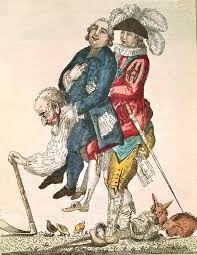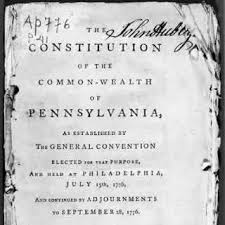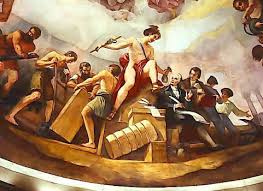Standing Up for the French Revolution
Submitted by Radical Reformer on Sat, 07/14/2018 - 9:45pm
I've always found it interesting that the United States and France both celebrate their independence days, at least in a sense, in July, just nine days apart from each other. Of course, the American and French Revolutions were somewhat different in character. For America it was more a war of national liberation against what had become an imperial master, determined to keep its colonies subservient (the crux of Tom Paine's argument in Common Sense), though there were elements of civil war and social revolution as well. France's revolution, on the contrary, began as a strictly internal affair, an upheaval against a badly outmoded form of government and social system.



